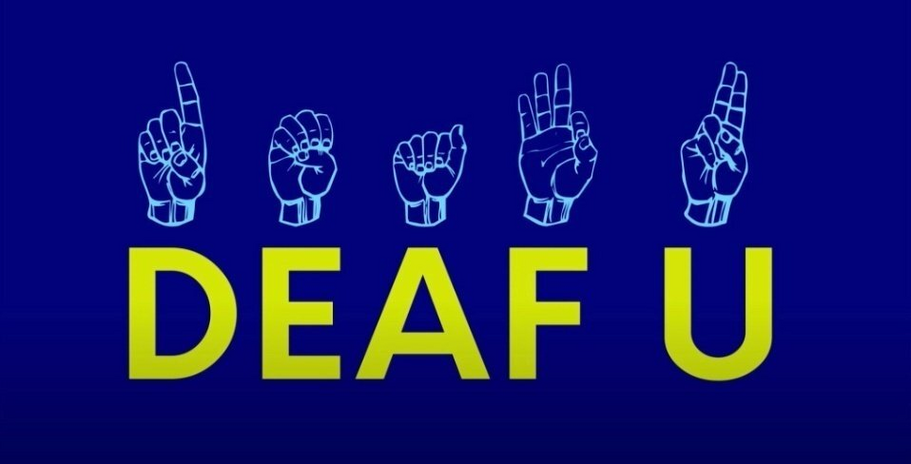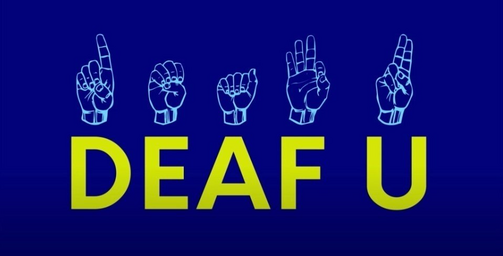If you’re browsing through Netflix in search of a show to play in the background while you go about your daily at-home activities, Deaf U might not do it, but you’ll definitely want to add it to your list. Though not great for ambient sound as it requires less listening and more reading of the signs or subtitles, this new Netflix docuseries is a must, especially for the hearing majority.
The series mostly takes place at Gallaudet University, a post-secondary school for deaf and hard of hearing students in Washington, D.C. Through minimal sound–rare verbal conversations and some music in transitional scenes as well as party scenes–the many facets of college life are displayed from a perspective that is often overlooked in film and television.
The show contains various eye-opening scenes for people who might not be familiar with the particularities of deaf culture. Some of these cultural differences are expressed from the very beginning in the first episode when, for instance, a couple cuddling needs to break apart to communicate, or friends at a restaurant need to move the water bottle from the middle to the side of the table to better see each other’s hands.
Though the show’s title might seem to suggest that the storyline is primarily focused on what it’s like to be deaf, it is much more than that. The producer does a good job of projecting the realities of deaf and hard of hearing people into regular college themes–sex, romance, party, struggle–in a way that showcases the distinctiveness of each of the students’ lives over their deafness.
Through a mixture of sit-down interviews and real-life footage, the viewer is transported into the intertwining lives of six college students–Alexa, Cheyenna, Renate, Daequan, Dalton and Rodney. The scenes dive into the diversity of these students’ baggage and challenges, ranging from attachment and daddy issues, double standards in relationships and mental health, to sexual assault, dealing with the death of a parent and being an orphan. These individual struggles promote awareness about the impact of traumatic childhood experiences on a person and its development. The heaviness of all of these students’ backgrounds combined with their personality provides a lot of drama to the series–with the exception of Dalton whose calm nature provides a semblance of balance to the loads of emotions that fills the show.
Beyond these individual conflicts, the docuseries also tackles more general topics, such as romantic relationships. This is a pretty prominent theme, to the point where viewers might feel like most of the interactions between the real-life students revolve around dating and hook-ups. Though the topic definitely spices up the show with all the gossip it entails, it is a little overstressed at the expense of other compelling issues such as the social hierarchy within the deaf community.
From the very start of the show, there is mention of a social division among the students at the university. On the one hand, the school’s community encompasses an “elite” that is composed of those who are completely deaf, come from parents who are deaf and whose first language is American Sign Language (ASL). On the other hand, anyone who does not meet these qualifications is denigrated by the elites for not being “deaf enough.”
These dynamics between students are raised on multiple occasions in the show. One instance of this is when Cheyenna is quite blatantly getting bullied by the elites as she attempts to gain their acceptance. The matter is also brought up by Rodney and Daequan who, in contrast to Cheyenna, refuse to be bothered by the Gallaudet standards as they are partially deaf and enjoy both speaking and signing. The producer could have elaborated on this conflict which caught the interest of many viewers. More scenes on disputes involving the elites and more segments on the latter’s perspective of this division would have enriched the show.
Deaf U demonstrates the diversity that exists within the deaf community, which ultimately spreads awareness onto the inaccurate belief that everyone with hearing impairment experiences this disability the same. There is no single or right way to experience deafness, a message that the show successfully conveys.



